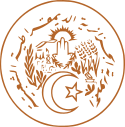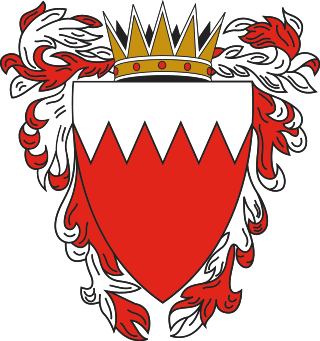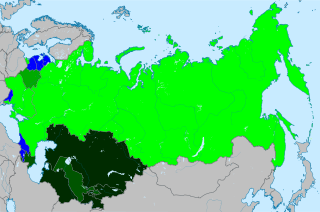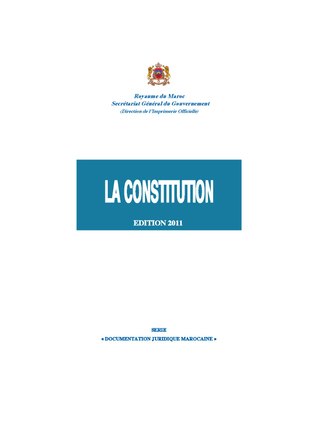| ||||||||||||||||||||||
| Results | ||||||||||||||||||||||
|---|---|---|---|---|---|---|---|---|---|---|---|---|---|---|---|---|---|---|---|---|---|---|
| ||||||||||||||||||||||
 |
|---|
|
A referendum on the enrichment of the National Charter (first approved in a 1976 referendum) was held in Algeria on 16 January 1986. [1] The changes were approved by 98% of voters with a turnout of 98%.
| ||||||||||||||||||||||
| Results | ||||||||||||||||||||||
|---|---|---|---|---|---|---|---|---|---|---|---|---|---|---|---|---|---|---|---|---|---|---|
| ||||||||||||||||||||||
 |
|---|
|
A referendum on the enrichment of the National Charter (first approved in a 1976 referendum) was held in Algeria on 16 January 1986. [1] The changes were approved by 98% of voters with a turnout of 98%.
| Choice | Votes | % | |
|---|---|---|---|
| For | 10,508,863 | 98.31 | |
| Against | 181,063 | 1.69 | |
| Total | 10,689,926 | 100.00 | |
| Valid votes | 10,689,926 | 99.31 | |
| Invalid/blank votes | 74,102 | 0.69 | |
| Total votes | 10,764,028 | 100.00 | |
| Registered voters/turnout | 10,954,063 | 98.27 | |
| Source: Official Journal | |||

This is a list of referendums related to the European Union, or referendums related to the European Communities, which were predecessors of the European Union. Since 1972, a total of 48 referendums have been held by EU member states, candidate states, and their territories, with several additional referendums held in countries outside the EU. The referendums have been held most commonly on the subject of whether to become a member of European Union as part of the accession process, although the EU does not require any candidate country to hold a referendum to approve membership or as part of treaty ratification. Other EU-related referendums have been held on the adoption of the euro and on participation in other EU-related policies.

The National Action Charter of Bahrain is a document put forward by King Hamad ibn Isa Al Khalifah of Bahrain in 2001 in order to end the popular 1990s Uprising and return the country to constitutional rule. It was approved in a national referendum in 2001, in which 98.4% of the voters voted in favor of the document.
The Constitution of American Samoa is the constitution that defines the government of American Samoa. Unlike constitutions of a state, it is subject to unilateral change by the federal government. Constitutional documents of the territory include the treaties that created it and the 1960 constitution approved by the federal government and popular referendum.
A referendum to approve a new constitution was held in Qatar on 29 April 2003. The constitution was overwhelmingly approved, with over 98% in favour. The population of the country was estimated to be around 790,000 at the time of the referendum with only 85,000 registered voters. Voter turnout was 84.3%. With the referendum's approval, it also created a legislative body of which two-thirds would be elected by universal suffrage, and one third appointed by the Emir. According to the new constitution, the legislature will have three powers: to approve the national budget; to monitor the performance of ministers through no-confidence votes; and to draft, discuss, and vote on proposed legislation, which becomes law only with the vote of a two-thirds majority and the Emir's endorsement.

The 1992 Constitution of Mali was approved by a referendum on 12 January 1992 after being drawn up by a national conference in August 1991. The constitution provides for multi party democracy within a semi-presidential system. It was briefly suspended after the 2012 military coup.
A constitutional referendum was held in Iceland between 20 and 23 May 1944. The 1 December 1918 Danish–Icelandic Act of Union declared Iceland to be a sovereign state separate from Denmark, but maintained the two countries in a personal union, with the King of Denmark also being the King of Iceland. In the two-part referendum, voters were asked whether the Union with Denmark should be abolished, and whether to adopt a new republican constitution. Both measures were approved, each with more than 98% in favour. Voter turnout was 98.4% overall, and 100% in two constituencies, Seyðisfirði and Vestur-Skaftafjellssýsla.

A referendum on the future of the Soviet Union was held on 17 March 1991 across the Soviet Union. It was the only national referendum in the history of the Soviet Union, although it was boycotted by authorities in six of the fifteen Soviet republics.

The 2009 Washington Referendum 71 (R-71) legalized domestic partnership in Washington state, the first statewide referendum in the United States that extended to LGBT people the rights and responsibility of domestic partnership. The bill had passed State Legislature, and it was signed into law by the Governor in May 2009, but opponents gathered enough signatures to put the measure before the voters, who returned ballots by mail over three weeks ending on November 3, 2009, approving the measure 53% to 47%. The new law went into effect 30 days later, on December 3, 2009.

A referendum on the creation of the United Arab Republic was held in Egypt on 21 February 1958, alongside a simultaneous referendum in Syria. The referendum consisted of two questions; one on the formation of the UAR, and the other on Gamal Abdel Nasser's candidacy for the post of President of the UAR. Both were approved, with fewer than 300 votes against and a 98.1% voter turnout.

A referendum on the Federation of Arab Republics was held in Egypt on 1 September 1971, alongside simultaneous referendums in Libya and Syria. It was approved by 99.96% of voters, with a turnout of 98.1%.
A referendum on the Islamisation policy of President Muhammad Zia-ul-Haq was held in Pakistan on 19 December 1984. Voters were asked whether they supported Zia-ul-Haq's proposals for amending several laws in accordance with the Quran and Sunnah, whether they wanted this process to continue, and whether they supported the Islamist ideology of Pakistan. The referendum also served as way of extending Zia-ul-Haq's presidential term by five years. Official results declared it approved by 98.5% of voters, with a turnout of 62.2%. Independent observers questioned whether voter participation had reached 30% and noted that there had been "widespread irregularities".

The Constitution of Morocco is the supreme law of the Kingdom of Morocco. The constitution defines Morocco as a constitutional monarchy and lays out the fundamental rights of Moroccan citizens, it also defines the basis and structures of government, the council of ministers, and the parliament.

A referendum on the new constitution or organic law was held in Spain on 14 December 1966, with all Spaniards over age 21 being allowed to participate. The question asked was "Do you approve of the Organic Law of the State Bill?". It was approved by 98.1% of valid votes on a turnout of 88.8%.
A constitutional referendum was held in East Germany on 6 April 1968. The new constitution was approved by 96.4% of voters, with turnout reported to be 98.1%, and came into force on 9 April.

A referendum on transferring ownership to the United States was held on 9 January 1868 on the islands of Sankt Jan and Sankt Thomas, two of three main islands in the Danish West Indies. In the referendum, held by universal male suffrage, voters could approve or reject the outcome of negotiations for the sale of the two islands to the United States for US$7.5 million. The third island, Sankt Croix, was to be sold separately to the US at a later date.
A referendum on remaining in Yugoslavia was held in the parts of Bosnia and Herzegovina with a significant Serb population on 10 November 1991. The referendum was organised by the Bosnian Serb Assembly and asked two questions; to Serbs it asked:
Do you agree with the decision of Assembly of the Serbian people in Bosnia and Herzegovina of October 24, 1991, that the Serbian people should remain in a common Yugoslav state with Serbia, Montenegro, the SAO Krajina, SAO Slavonija, Baranja and Western Srem, and with others who have come out for remaining?

The Constitution of the Arab Republic of Egypt is the fundamental law of Egypt.

In the Netherlands, from the entry into force of the Advisory Referendum Act on 1 July 2015, until its repeal on 18 February 2018, most types of primary laws could be subjected to a suspensory, non-binding referendum if requested shortly after royal assent and subsequent proclamation. If a law was rejected by more than half of the votes cast, with a mandatory turnout of at least 30%, its entry into force was to be suspended indefinitely and a follow-up law had to be enacted that either repealed the law or provided for its entry into force.

Guinea has had four constitutions. The latest constitution was approved by referendum on 19 April 2010 and formally adopted on 7 May. However, it was later dissolved on 5 September 2021, following the 2021 Guinean coup.
A referendum on the creation of a South West Ethiopia Peoples' Region was held in the Keffa, Sheka, Bench Sheko, Dawro, West Omo Zones, and Konta special district of the Southern Nations, Nationalities, and Peoples' Region (SNNPR) of Ethiopia on 30 September 2021 in conjunction with the 2021 Ethiopian general election. The result was 98% in favor of creating a new region, with turnout of 94%.